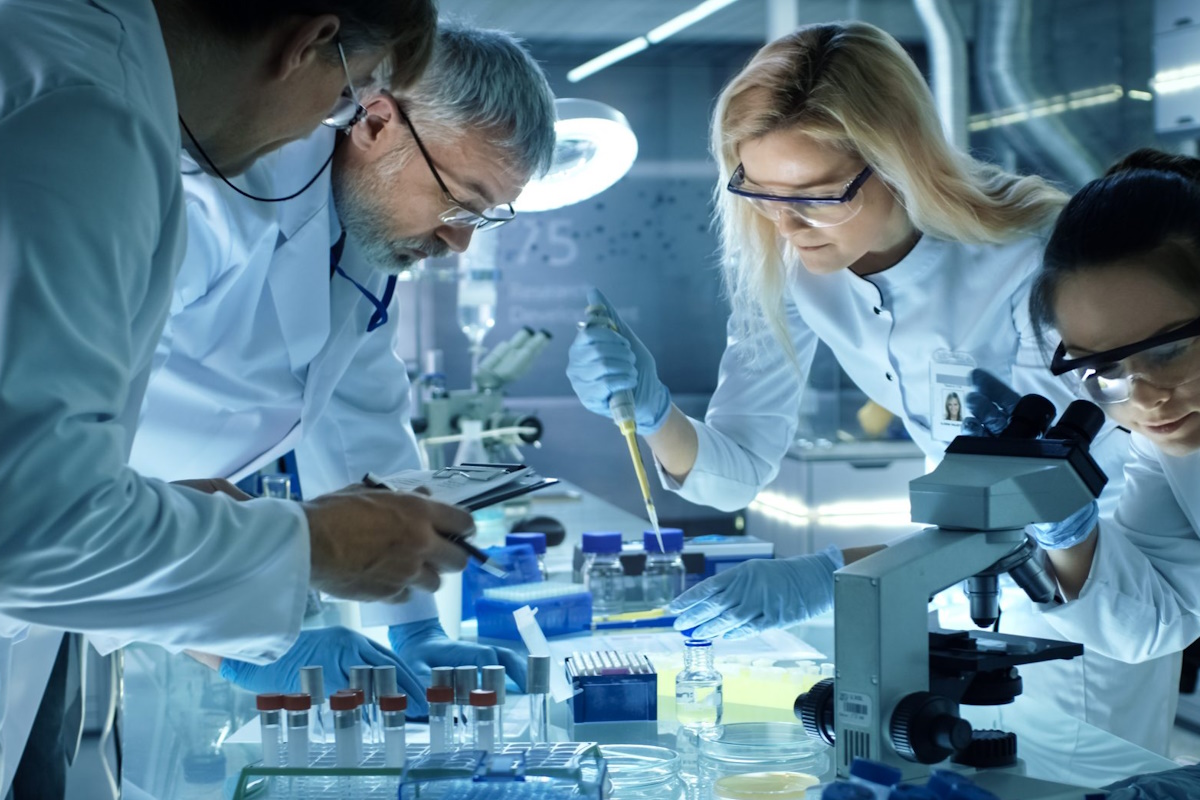Medical Science
The future of medical science is expected to be shaped by several transformative trends and technological innovations, which have the potential to revolutionize healthcare and improve patient outcomes. Here are some of the key areas driving the future of medical science:
1. Personalized Medicine
- Genomics and Precision Medicine: Advances in genetics and genomics allow for treatments to be tailored to an individual’s unique genetic makeup. This enables more accurate diagnoses, customized therapies, and targeted treatments, particularly in cancer, rare diseases, and inherited conditions.
- Pharmacogenomics: This emerging field involves using a patient’s genetic information to predict how they will respond to certain medications, minimizing adverse effects and improving efficacy.
2. Artificial Intelligence and Machine Learning
- AI in Diagnostics: Machine learning algorithms can analyze medical data such as imaging, lab results, and genetic information to identify patterns and assist in diagnosing diseases with high accuracy (e.g., detecting cancerous tumors from imaging scans).
- Predictive Analytics: AI systems can predict disease outbreaks, patient deterioration, and treatment outcomes, helping doctors make more informed decisions.
- Virtual Assistants: AI-powered chatbots and virtual assistants could provide 24/7 healthcare support, answering patient queries and monitoring chronic conditions.
3. Telemedicine and Remote Healthcare
- Telehealth Expansion: The use of telemedicine, accelerated by the COVID-19 pandemic, is likely to become more prevalent. This allows patients to consult with doctors remotely, reducing the need for in-person visits and increasing healthcare access in underserved areas.
- Wearable Devices: Health-monitoring wearables (such as smartwatches) can continuously track vital signs, physical activity, and other health metrics, enabling real-time monitoring of chronic conditions and early detection of health issues.
4. Regenerative Medicine and Stem Cell Therapy
- Stem Cell Therapies: Stem cells have the potential to regenerate damaged tissues and organs, offering hope for treating diseases like diabetes, Parkinson’s, and spinal cord injuries. In the future, stem cell therapy could enable the growth of new tissues for transplantation or the repair of damaged organs.
- Tissue Engineering and 3D Bioprinting: Advances in tissue engineering and 3D bioprinting may lead to the ability to produce lab-grown organs, such as kidneys and livers, reducing the dependency on donor transplants and solving organ shortages.
5. CRISPR and Gene Editing
- Gene Editing for Disease: CRISPR technology allows scientists to precisely edit genes, potentially curing genetic disorders such as cystic fibrosis, muscular dystrophy, and sickle cell anemia. Future applications may extend to modifying disease-causing genes before birth, enabling prenatal treatments.
- Ethical Implications: While gene editing offers enormous potential, it also raises ethical concerns about “designer babies” and unintended consequences, which will need to be carefully addressed.
6. Nanotechnology in Medicine
- Nanomedicine: Nanotechnology is being developed to deliver drugs more effectively, target specific cells (such as cancer cells), and repair damaged tissues at the molecular level. Nanoparticles can also be used for imaging, allowing for earlier and more accurate diagnoses.
- Smart Drug Delivery: Nanobots or nanoparticles could one day be programmed to deliver medication directly to diseased cells, minimizing side effects and improving treatment outcomes.
7. Robotics and Minimally Invasive Surgery
- Robotic Surgery: Robots like the da Vinci surgical system enable surgeons to perform precise, minimally invasive surgeries. In the future, advances in robotics may allow for even more complex procedures with enhanced precision, less risk, and faster recovery times.
- Microrobots: Tiny robots are being developed to perform delicate surgeries or deliver drugs directly to hard-to-reach areas within the body, such as the brain or deep within blood vessels.
8. Biotechnology and Synthetic Biology
- Artificial Organs: The development of artificial organs, such as synthetic hearts or lungs, may become more common in the future, providing life-saving options for patients awaiting transplants.
- Synthetic Biology: This field involves engineering biological systems to create new treatments, like reprogramming bacteria to produce therapeutic compounds or designing new materials for medical applications.
9. Immunotherapy and Cancer Treatment
- Advances in Immunotherapy: Immunotherapy, which uses the body’s immune system to fight diseases, particularly cancer, is showing promising results. Future research may expand its use to a broader range of cancers and other immune-related conditions.
- CAR-T Cell Therapy: A form of immunotherapy where a patient’s T cells are genetically engineered to target and kill cancer cells, offering potential cures for some forms of cancer.
10. Longevity and Aging Research
- Anti-Aging Therapies: Research into the biology of aging is yielding insights into slowing down the aging process and extending healthy lifespan. Senolytic drugs, which remove aged cells, and other therapies could potentially delay age-related diseases like Alzheimer’s, heart disease, and cancer.
- Regenerative Medicine for Aging: Advances in regenerative medicine, stem cells, and genetic research may eventually provide treatments to reverse or repair age-related cellular damage.
11. Ethics and Data Privacy
- Medical Data Security: As healthcare becomes increasingly digital, securing patient data and maintaining privacy will be a major challenge. Ethical use of AI and medical data, ensuring transparency and avoiding bias in algorithms, will be critical.
- Access and Affordability: While advanced medical technologies promise improved healthcare, ensuring equitable access across different socioeconomic groups will be a significant issue.
Conclusion
The future of medical science is incredibly promising, with innovations in genomics, AI, regenerative medicine, and more set to transform healthcare. However, alongside these advancements come ethical, social, and practical challenges that need to be addressed to ensure that everyone can benefit from these breakthroughs.

